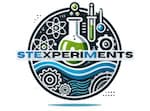Table of contents
Work Package 3
Creation of STEM Experiments
Specific objectives
The implementation of STEAM experiments in many schools needs holistic integration, particularly in the realm of digital experiments. Furthermore, there is a need to develop a more balanced approach to physical experiments, which emphasise psychomotor skills, and digital experiments, which emphasise digital skills. To address these gaps, this working package seeks to develop STEAM activities that promote continuity between physical and digital experiments while creating learning experiences that foster active learning, creative thinking, and real-world application. The goal is to provide pre-service and in-service teachers with opportunities to test these activities. This working package has the specific objective to develop a set of valid and reliable STEAM experiment activities based on educational analysis studies conducted in Europe. The development of this working package process involves a review and trial process, which gathers input from various perspectives. Examples of activities that could be developed include combining floral formulas and flower diagrams with 3D modelling or introducing bioinformatics to students, which combines multiple disciplines within STEAM. The ultimate goal is to align this specific objective with the broader objective of promoting STEAM education, equipping teachers with digital readiness, and increasing their resilience.
Results
This working package aims to produce guidelines for teachers that cover basic theory, materials, tools, experimental procedures, and the evaluation of experimental activities. These guidelines will develop physical and digital STEAM experiment activities, highlighting how interactions between STEAM disciplines build content in experiments. The guidelines will be disseminated through scientific articles in conferences and journal or group discussions between partners to elicit expert feedback and facilitate content discussion. Moreover, curricula from partner countries will contribute to the content of these guidelines.
To ensure the validity and reliability of the guidelines, trials will be conducted in the form of alpha testing on a limited scale and beta testing on a larger scale. Pre-service teachers from each partner university will participate in the trials, providing insights into how teachers implement physical and digital experiments. The trial results will inform the revision of guidelines for implementation in a broader scope. The guidelines developed through this working package will equip teachers with the necessary knowledge and skills to conduct STEAM experiments that promote active learning, creative thinking, and application in the real world.
Activities
The WP consists of the following activities:
-
Analysis of STEAM experiments:
- It involves analyzing STEAM experiments, using curriculum data references from partner The aim is to understand the current state of STEAM experiments and identify areas for improvement.
-
Selection of experiments:
- Based on the analysis, the team will select experiments that can be adapted for the project. The JKU group will make the initial design for each curriculum content.
-
Developing detailed experimental activities:
- The content from the previous stage will be developed into more detailed This will involve creating experiment materials, and tools, defining procedures, and developing evaluation guidelines for experiments.
-
Reviewing the activities:
- The draft guidelines will be discussed to obtain feedback and make revisions. The team will review and refine the guidelines to ensure they are straightforward. Partners will be responsible for translating into their language according to the needs of the users of the material.
-
Testing with pre-service teachers:
- The stage involves trailing the guidelines with pre-service teachers at each partner institution. The trial results will be used to improve the activities further.
-
Improving activities:
- The trial results will be used as the basis for perfecting the activities in the guidelines. Improvements will be made to the experimental activities to ensure they are more effective in achieving the objectives.
-
Adapting evaluation tools:
- It involves adapting evaluation tools to suit the STEAM objectives. They will be used to measure the effectiveness of the STEAM experiment in achieving the objectives.
-
Disseminating:
- In the final stage, the results will be disseminated through scientific papers. It is crucial in sharing the knowledge and experience gained during the project with a broad audience, encouraging further research in this area, and promoting the use of STEAM experiments.
